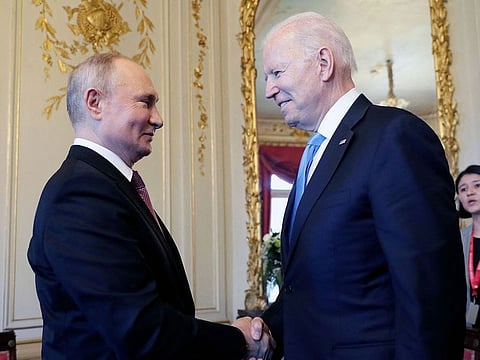Putin says Biden meet 'constructive', talks agreed on cybersecurity, arms
The Russian leader said the two had "agreed to start consultations on cybersecurity"

Geneva: Russian President Vladimir Putin said Wednesday that his first face-to-face meeting with US counterpart Joe Biden was "constructive" and the two sides had agreed to further discuss cybersecurity and arms control.
"The conversation was absolutely constructive", Putin told reporters after the talks with Biden in Geneva.
He described Biden as a "very constructive, balanced person, very experienced, you can see it immediately".
Putin said Biden had talked about his family and his mother, saying "this speaks of his moral values, and this is quite attractive."
The Russian leader said the two had "agreed to start consultations on cybersecurity" but suggested the United States had as big a problem with hacking and cybercriminals as Russia.
Washington has long complained of what it says is persistent and combative Russian cyber activity, namely meddling and interference in elections, that it says have been carried out either by Russian security services or hackers with links to the Kremlin.
Putin said the US had requested information on 10 separate cybersecurity incidents from Russia, and that Washington had received "exhaustive" answers in all cases.
"Russia sent 45 such requests to the United States last year," he said, "and 35 this year".
"And we have not received a single answer," he said, claiming that: "The largest number of cyberattacks in the world are carried out from the US space."
Biden's administration brought sanctions against Russia in April in response to the SolarWinds cyberattack that targeted federal organisations and more than 100 US companies.
Biden had also vowed to raise pressure on Russia for harbouring cybercriminals who have been blamed in major attacks on a US oil pipeline and a meat supplier.
Putin also said that as the leading nuclear powers the two countries have "special responsibility for strategic stability in the world".
He said Biden had made a "responsible decision" in February to extend the New START nuclear treaty, the last remaining arms reduction pact between Russia and the United States.
"The question is what comes next. We agreed that consultations will begin... between ministries of foreign affairs and defence."



